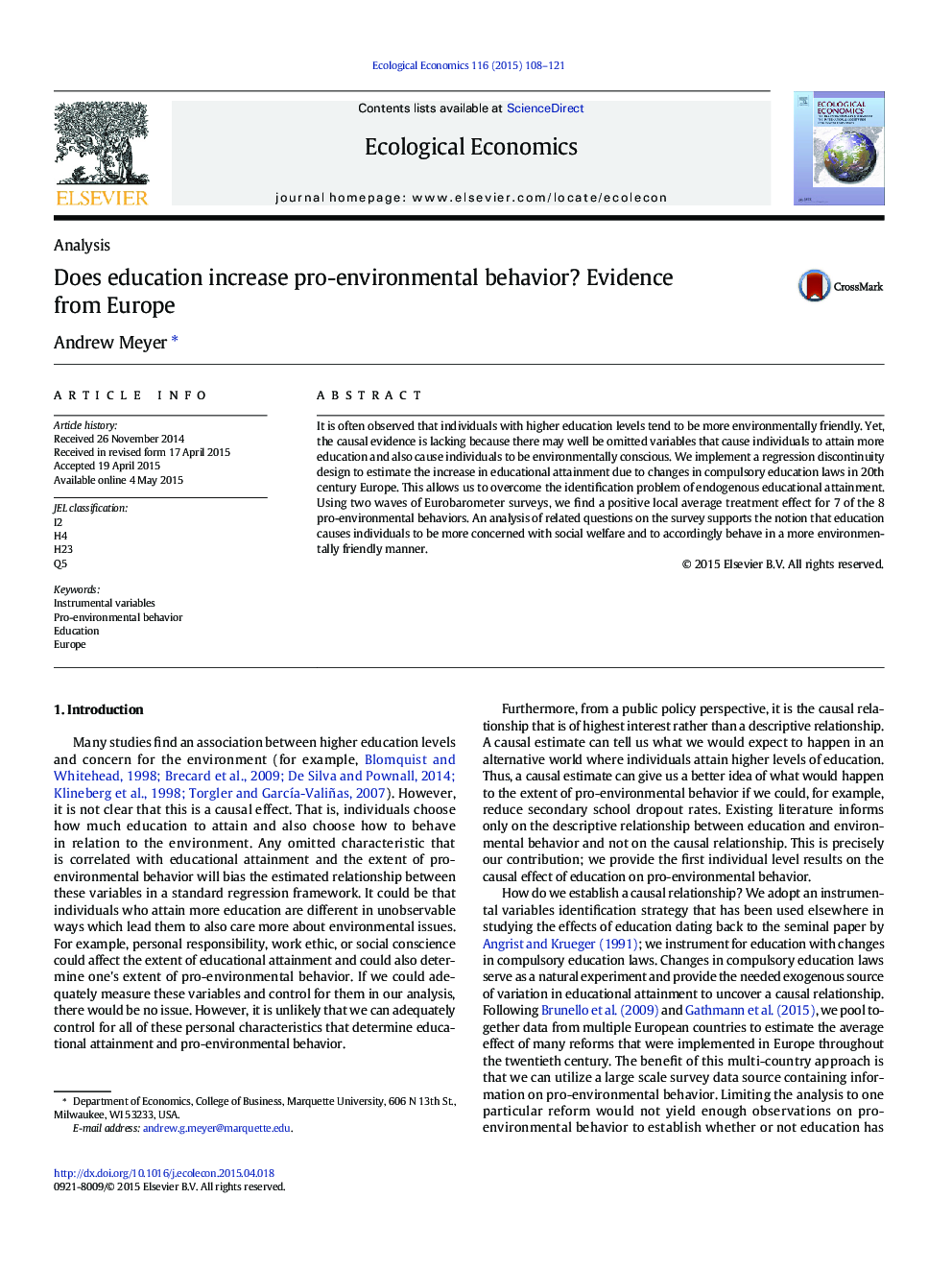| Article ID | Journal | Published Year | Pages | File Type |
|---|---|---|---|---|
| 5049433 | Ecological Economics | 2015 | 14 Pages |
â¢Previous evidence suggests a positive correlation between education and environmental behavior.â¢We note that unobserved characteristics make it difficult to infer causality from past evidence.â¢We utilize a regression discontinuity design to instrument for educational attainment.â¢Changes in compulsory education laws in 20th century Europe serve as source of exogenous variation.â¢We find strong evidence of a positive LATE of increased education on pro-environmental behavior.
It is often observed that individuals with higher education levels tend to be more environmentally friendly. Yet, the causal evidence is lacking because there may well be omitted variables that cause individuals to attain more education and also cause individuals to be environmentally conscious. We implement a regression discontinuity design to estimate the increase in educational attainment due to changes in compulsory education laws in 20th century Europe. This allows us to overcome the identification problem of endogenous educational attainment. Using two waves of Eurobarometer surveys, we find a positive local average treatment effect for 7 of the 8 pro-environmental behaviors. An analysis of related questions on the survey supports the notion that education causes individuals to be more concerned with social welfare and to accordingly behave in a more environmentally friendly manner.
